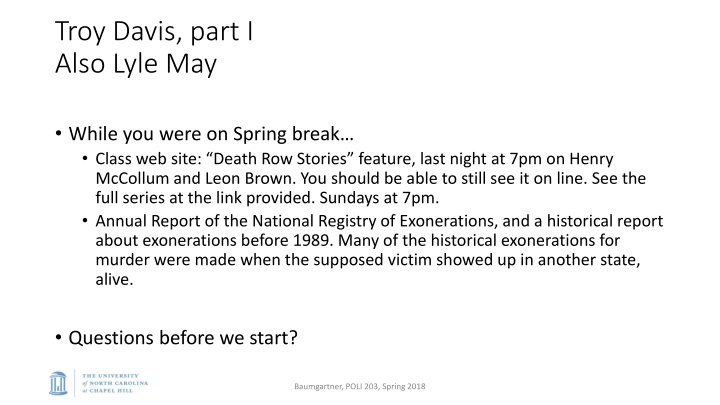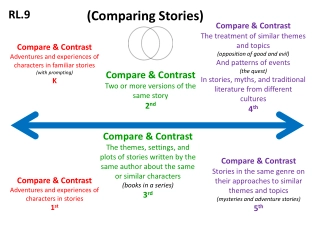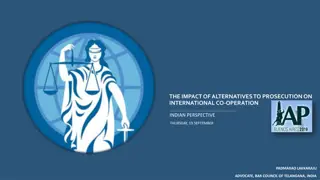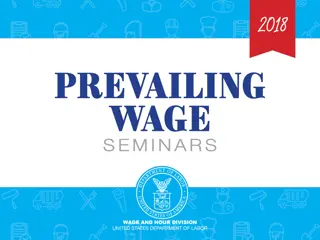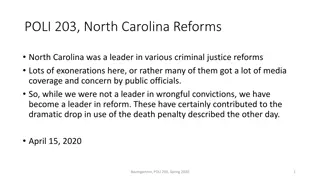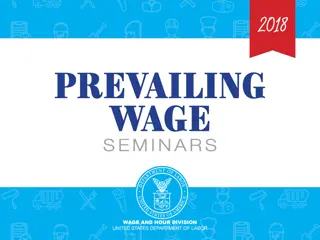Connections Between Lyle May, Troy Davis, and Exoneration Stories
Explore the intertwined narratives of Lyle May and Troy Davis, delving into legal complexities, expert witness credibility, and the impact of cooperation with law enforcement. Discover the common threads linking their cases to broader themes of justice and exoneration.
Download Presentation

Please find below an Image/Link to download the presentation.
The content on the website is provided AS IS for your information and personal use only. It may not be sold, licensed, or shared on other websites without obtaining consent from the author.If you encounter any issues during the download, it is possible that the publisher has removed the file from their server.
You are allowed to download the files provided on this website for personal or commercial use, subject to the condition that they are used lawfully. All files are the property of their respective owners.
The content on the website is provided AS IS for your information and personal use only. It may not be sold, licensed, or shared on other websites without obtaining consent from the author.
E N D
Presentation Transcript
Troy Davis, part I Also Lyle May While you were on Spring break Class web site: Death Row Stories feature, last night at 7pm on Henry McCollum and Leon Brown. You should be able to still see it on line. See the full series at the link provided. Sundays at 7pm. Annual Report of the National Registry of Exonerations, and a historical report about exonerations before 1989. Many of the historical exonerations for murder were made when the supposed victim showed up in another state, alive. Questions before we start? Baumgartner, POLI 203, Spring 2018
Before we hear from Lyle May Here is his denial of relief from the NC Supreme Court in 2001, worth reading: http://caselaw.findlaw.com/nc-supreme-court/1216341.html How high the bar is for claims or mistakes that your lawyer may have made at the original trial. Remember, there must be finality and you are not promised a perfect trial, nor a flawless trial attorney. You are promised a fair trial . If you don t take advantage of your opportunities the first time, you can t ask for them to be given to you again. Repeatedly these claims are denied there, for example: Baumgartner, POLI 203, Spring 2018
Two quotes from the Lyle May decision Because defendant failed to object to these allegedly improper statements during the closing arguments, he must demonstrate that the prosecutor's closing arguments amounted to gross impropriety. The record again reveals that defendant lodged no objection, constitutional or otherwise, to the ex parte hearing, or to the order, either at trial or before. Nor did he make a motion to strike the order or to prevent the State from using the records the order produced. He further failed to appeal from that order or to petition for appellate review when he became aware of the order before trial. Defendant has therefore waived any right to appellate review of this issue. Baumgartner, POLI 203, Spring 2018
Another interesting element in the Lyle May case Prosecutor repeatedly argues that the expert witness, a psychologist, will essentially say anything for money. Read the decision and look for fifteen hundred dollars [or bucks] a day Should either side, but particularly the state, be required to be consistent? That is, if they say psychological expert witness are willing to say whatever their client asks, should that work both ways? Clearly it does not Baumgartner, POLI 203, Spring 2018
A link between Lyles case, Troy Davis case, and many others He who cooperates with the police suffers the least Lyle May s buddy was Darrell Godfrey. They met, along with the victim, while receiving treatment at Broughton Psychiatric Hospital. (Note to self: don t hang out with people you meet after getting released from the mental hospital ) Darrell Godfrey went to the police first, said it was Lyle. Troy Davis: Redd Coles went to the police, said he knew all about the crime, and it was someone else! (that is, Troy Davis) Baumgartner, POLI 203, Spring 2018
Remember Richard Glossip, in Oklahoma? Key witness was the triggerman, Justin Sneed, who testified that Glossip hired him to kill their boss. Sneed got LWOP, Glossip got death. Sneed was the only one to testify against Glossip So, sometimes the motivation of the person testifying is literally life or death. Certainly that would have been the case for Redd Coles in the killing of Officer MacPhail. Someone was going to pay dearly for that crime. Baumgartner, POLI 203, Spring 2018
Playmakers production of Count https://playmakersrep.org/show/count/ Monologues collected from a number of DR inmates Some were performed in our class lecture series 2 years ago, as the play was in production. These were read by actors but based on the stories collected. Baumgartner, POLI 203, Spring 2018
Troy Davis Chronology / timeline of the evening of the crime List of characters involved / present at the crime scene / in the area High school pool party, gang or other violence, anyway a shooting. From there to the pool hall / bus station. Relevant elements in the chronology and background Savannah: 55% white, 38 % Black. Cloverdale neighborhood, more like 99 percent black: http://www.city-data.com/neighborhood/Cloverdale-Savannah-GA.html Use this link to understand the redlining and racial divisions in Savanna neighborhoods. Explore google maps for the area, look at both sites at the same time. Get directions in Google maps from Cloverdale Savannah GA to Savanna GA bus station Baumgartner, POLI 203, Spring 2018
Officer MacPhail down The crime, the lack of clarity not unusual The mobilization of the police force The confession is key Baumgartner, POLI 203, Spring 2018
He who flips first, suffers least? Redd Coles as the informant Baumgartner, POLI 203, Spring 2018
How to assess unreliable witnesses Boy scouts and church choir masters may not be at the pool hall / bus station at 1am on a Saturday morning Lots of people have criminal records, something to gain, a charge reduced, another benefit if they cooperate Not to mention, they may want to avoid being the target, stay on the good side of investigators. Motivated testimony is very common. You and I may not be motivated, but if you are in the system the police may have leverage over you or a loved one. Baumgartner, POLI 203, Spring 2018
Possible tunnel vision Close the case Make someone pay Get an air-tight case that will lead to conviction Eyewitness testimony very compelling Confessions very helpful (none in this case) Recanting testimony later: perjury? Trustworthiness easily questioned Baumgartner, POLI 203, Spring 2018
Troys case exemplifies Reversing an initial conviction very hard Lack of good attorneys, limited resources available for indigent defense Entire family goes down Terrible divisions in the community, as people divide based on trust in police / race If wrong person is convicted, true perpetrator gets away with murder Also, once the state has a convicted cop-killer (or other murderer) safely in prison, few incentives exist to second-guess that judgment. Baumgartner, POLI 203, Spring 2018
Four dates with death Troy came twice within 24 hours of his death date, a third time it was cancelled a few days ahead of time, and the fourth time, it came 4 hours after it was scheduled, as the US Supreme Court considered his appeals again. Is that torture? Is that unusual?
Twenty-two years on death row That definitely is not unusual. Is it torture? This has been litigated twice. The first time, it was rejected. 1995, Lackey v. Texas. USSC rejected it. But he had only served 16 years when he filed. 2014, Jones v. Chappell, Federal judge ruled that the California system is unconstitutional because of the average 20 year delay for completing appeals. Rejected on appeal because the California state appeals process was not complete Justice Breyer, in Glossip, raised this issue: What is the additional value to society of death, following 30+ years on death row? So this will be litigated.
Consequences of being dirty or having paper First, we are not talking about fugitive murderers, here. Rather, failure to pay court costs after a traffic ticket for example. Any official conduct, drivers license office, going to the hospital, applying for unemployment, etc. is an opportunity for the police to come get you. So, no recourse for abuse, no regular job, etc. Marginalization as a way of life.
Having paper Recent interesting book In certain parts of towns, maybe 30 percent of men are dirty and the clean ones are often only one altercation away.
Walter Scott, Akiel Denkins North Charleston, Raleigh shootings Many people ask: Why did he run? Several outstanding warrants for such things as being late on child support. (You can go to jail for that in S.C.) Denkins, similarly, lots of paper for drugs etc. Would you run at the sight of the police? No. (Please don t!) But many people do. Particularly in areas where crimes occur.
What do you lose when you have paper? First, you lose your citizenship rights. Second, you lose your sense that the police will be on your side. You now have a prior record. Third, you lose your credibility as a witness for your own defense. (However, strangely, you do not lose your credibility as a witness for the prosecution.)
What do you lose when you have paper? Fourth, you lose any leverage or independence and you become susceptible to pressure. Say x and certain charges will be dropped or reduced. Say x and your cousin s case will be dropped. Don t say x and this charge will be increased. Fifth, you have no credibility if you were to complain.
Two other great books on this Traci Burch Amy Lerman and Vesla Weaver Reduces trust in government, increases alienation, reduces use of public services, generates cynicism and anti- government attitudes on a mass scale. Entire communities see lower voting turnout, use of services, landlord complaints, etc. Community wide effects of mass incarceration.
